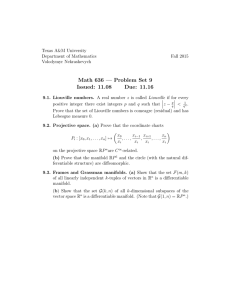7.B.7. Incompressible Flow
advertisement
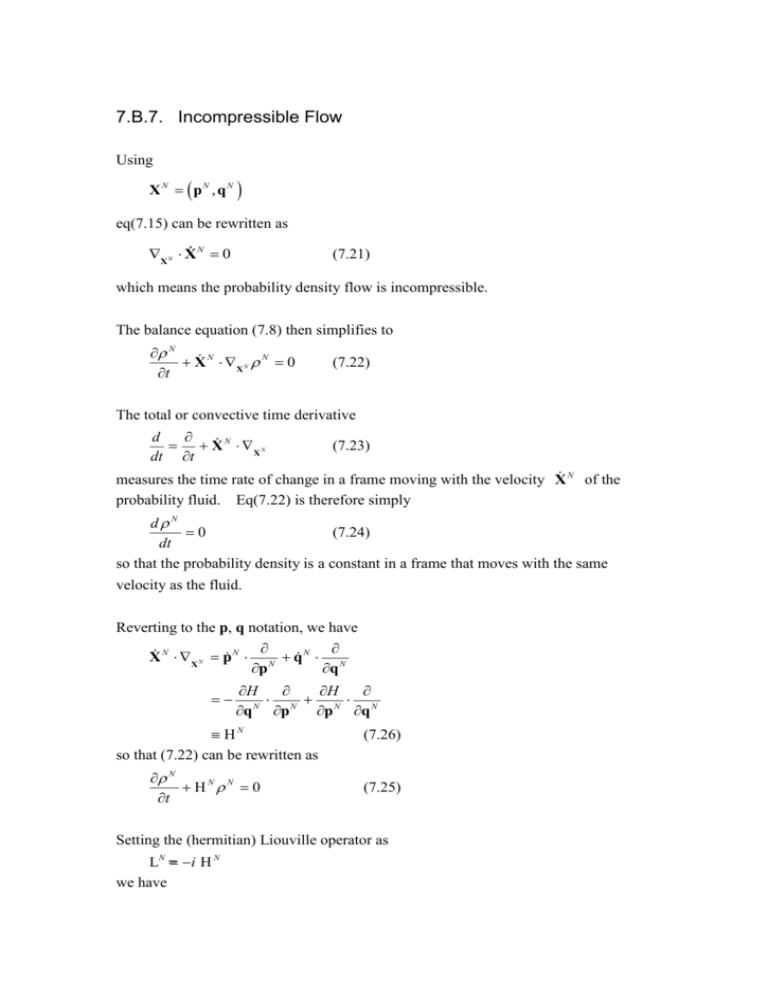
7.B.7. Incompressible Flow Using X N pN , qN eq(7.15) can be rewritten as X N X N 0 (7.21) which means the probability density flow is incompressible. The balance equation (7.8) then simplifies to N X N X N N 0 t (7.22) The total or convective time derivative d X N X N dt t (7.23) measures the time rate of change in a frame moving with the velocity X N of the probability fluid. Eq(7.22) is therefore simply dN 0 (7.24) dt so that the probability density is a constant in a frame that moves with the same velocity as the fluid. Reverting to the p, q notation, we have X N X N p N N q N N p q H H N N N N q p p q HN so that (7.22) can be rewritten as N HNN 0 t (7.26) (7.25) Setting the (hermitian) Liouville operator as LN = i H N we have N (7.27) LN N t which is called the Liouville equation. i For a stationary state, N 0 , so that t LN N 0 (7.29) The formal solution to (7.26) is simply N t e iL t N 0 N (7.28)
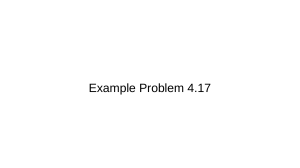
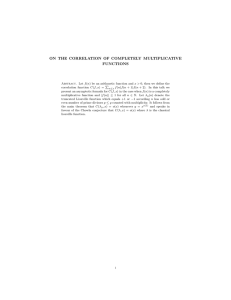
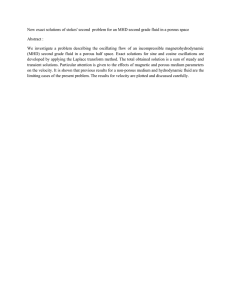
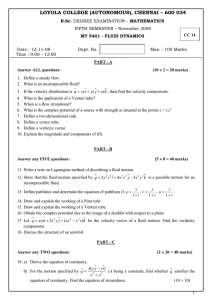
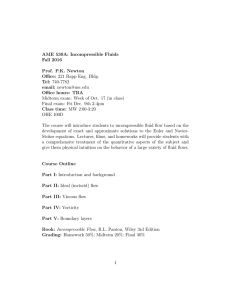
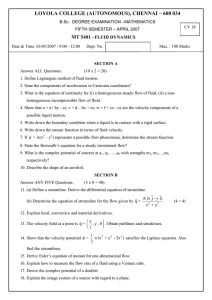
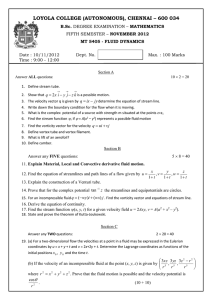
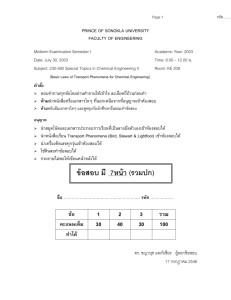
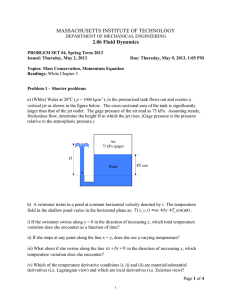
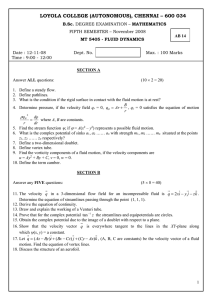
![The streamlines are logarithmic spirals moving out from the origin. ... about O.] This simple distribution is often used to...](http://s2.studylib.net/store/data/012446347_1-856dfe1450220540b95d56f386c12aa6-300x300.png)
